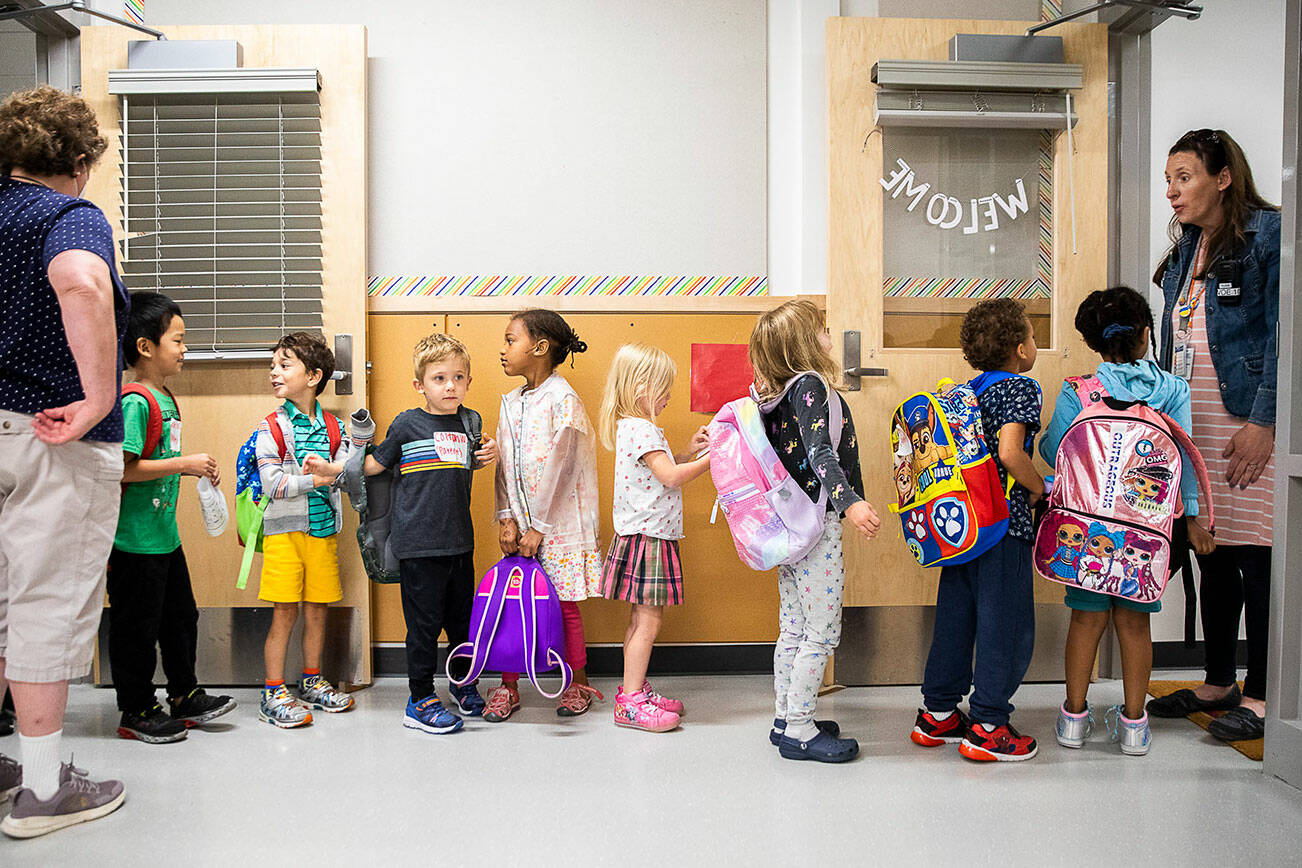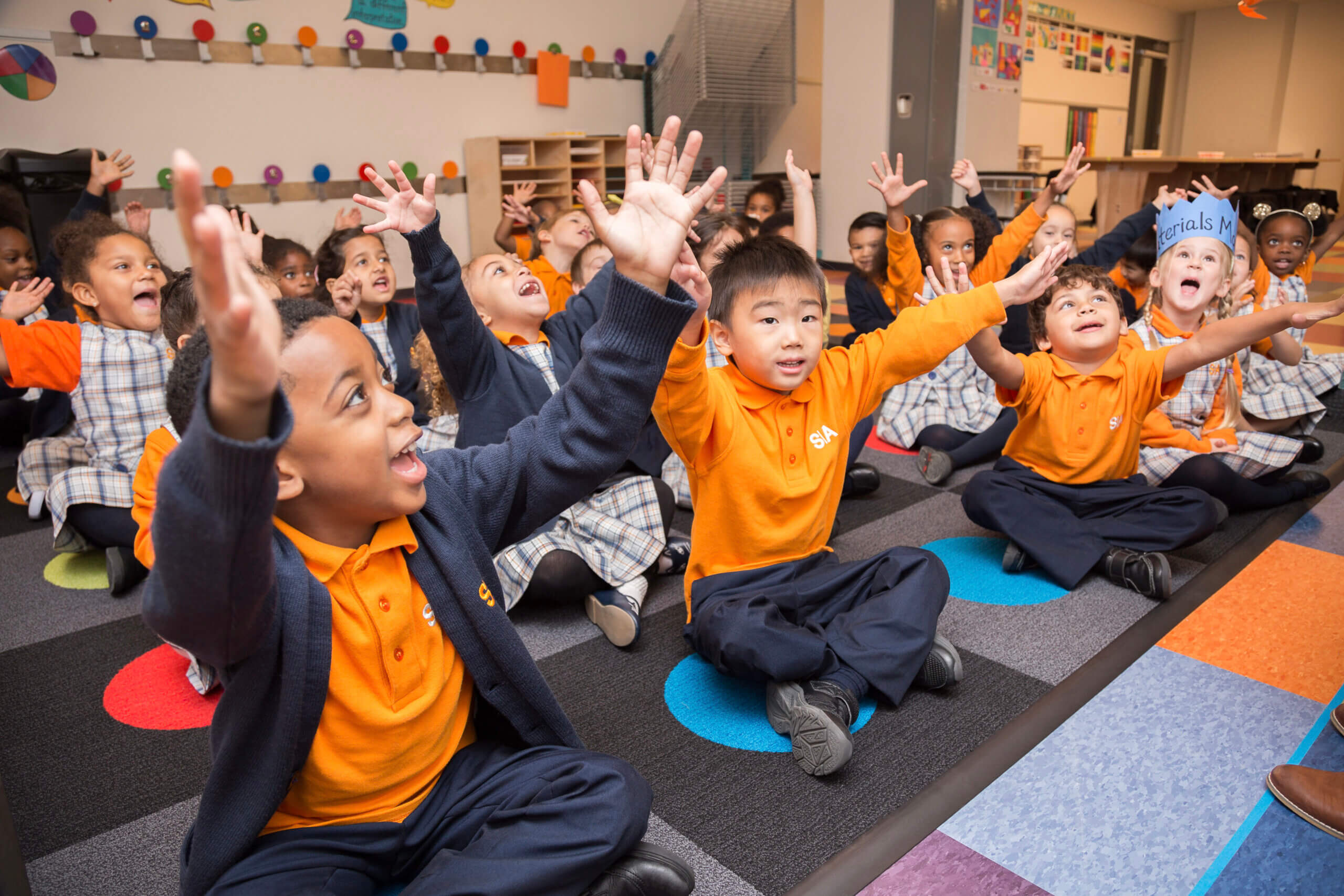Simple outdoor science experiments for Grade School students
Wiki Article
The Relevance of Interactive Activities in Elementary School Education
Interactive activities play a vital function in elementary school education and learning. They involve trainees and improve finding out results. Via group projects and hands-on experiments, trainees experience the material in a functional method. This approach provides to varied learning styles and promotes essential abilities. The benefits extend past academics. Discovering the much deeper effect of these tasks reveals their value in shaping young learners' futures. What improvements happen when students proactively participate?Enhancing Involvement With Interactive Understanding
Conventional training techniques have their merits, interactive learning greatly improves trainee engagement in quality school education and learning. This technique motivates energetic involvement, enabling trainees to submerse themselves in the knowing process. By making use of team activities, hands-on experiments, and technology-driven resources, instructors develop an environment where students really feel more connected to the product.Interactive understanding facilitates partnership among peers, promoting interaction abilities and synergy. It also satisfies varied knowing styles, making sure that visual, auditory, and kinesthetic learners can all thrive. Trainees are extra most likely to preserve info when they proactively take part, as opposed to passively obtaining expertise.
This vibrant approach not just makes learning enjoyable however likewise imparts a sense of possession in pupils concerning their academic journey. As they involve with the content, their interest and motivation to find out rise, laying a solid foundation for future scholastic success.
Developing Critical Assuming Skills
Interactive learning not just enhances interaction yet additionally works as a stimulant for establishing crucial believing skills in quality institution students. With activities such as problem-based discovering, debates, and hands-on experiments, trainees are motivated to examine info, evaluate various perspectives, and formulate reasoned verdicts. These interactive experiences call for pupils to question presumptions, leading them to think even more deeply regarding various subjects.
Interactive tasks typically present real-world scenarios that test students to use their expertise creatively. By maneuvering with these challenges, they learn to identify pertinent information and make notified choices. This process promotes not just individual essential thinking yet also motivates students to express their thought procedures, boosting their capacity to interact effectively. Therefore, interactive discovering atmospheres grow a generation of crucial thinkers who are much better prepared to deal with intricate issues in their future scholastic and professional endeavors.
Fostering Collaboration Amongst Peers
Fostering cooperation amongst peers is crucial in elementary school education and learning, as it boosts teamwork and communication abilities. Taking part in group tasks aids pupils build count on and regard for each other, laying the groundwork for reliable collaboration. Analytic together permits trainees to learn from each other and develop a cumulative approach to difficulties.Synergy and Communication Skills
Efficient teamwork and communication skills are crucial parts of an effective elementary school education and learning. Taking part in interactive activities encourages pupils to team up, share ideas, and address problems together. Such experiences promote the advancement of vital communication capabilities, enabling kids to reveal their thoughts plainly and pay attention proactively to others. Via team effort, pupils discover to appreciate varied point of views, promoting a sense of community and shared responsibility. Structured team jobs, whether in academics or innovative projects, enhance peer interactions, instructing children just how to negotiate roles and deal with disputes. These skills not only contribute to a favorable class environment yet also prepare trainees for future collaborative ventures in greater education and learning and the work environment. On the whole, team effort and interaction are foundational to holistic growth in elementary school.Building Trust Fund and Respect
Building count on and regard among peers acts as a cornerstone for successful partnership in grade school settings. They are extra likely to involve proactively in team activities when trainees feel valued and respected by their classmates. Interactive activities, such as group jobs and participating video games, offer possibilities for students to discover from each other, fostering a feeling of neighborhood. This atmosphere encourages open communication, permitting students to share their concepts and point of views without worry of judgment. As trust fund builds, students end up being a lot more ready to share obligations and support each other's understanding. Inevitably, growing an atmosphere of depend on and regard improves not just scholastic outcomes but likewise social advancement, equipping pupils with vital interpersonal skills for their future endeavors.Problem-Solving With each other
Joint analytical engages students in essential reasoning and teamwork, vital abilities for their individual and academic development. When students interact to take on difficulties, they discover to interact efficiently, respect diverse viewpoints, and take advantage of each other's strengths. This procedure boosts their capability to assess problems from various angles and create creative solutions. Team tasks, such as scientific research experiments or mathematics learn the facts here now challenges, promote energetic involvement and cultivate a sense of community. As students team up, they additionally develop social abilities, discovering to jeopardize and work out, which are essential for future interactions. Ultimately, problem-solving together grows a helpful learning setting, equipping trainees to take possession of their education while preparing them for joint undertakings past the class.Motivating Creativity and Advancement
Motivating creative thinking and development in grade school education and learning can be significantly boosted with hands-on discovering experiences. These activities enable pupils to engage directly with principles and products, fostering creative reasoning. Additionally, joint group jobs can stimulate diverse ideas and services, even more nurturing a creative setting.Hands-On Discovering Knowledge
A wide range of hands-on understanding experiences substantially enhances creativity and development in elementary school education. check this site out Involving students in sensible tasks permits them to use theoretical knowledge in real-world contexts, cultivating deeper understanding. By controling devices and products, children create important analytical abilities and discover to think outside package. These experiences influence inquisitiveness and motivate trainees to explore their passions even more. In addition, hands-on activities can connect different subjects, connecting science, art, and math in purposeful means. This interdisciplinary method urges pupils to see connections and believe creatively. Inevitably, hands-on discovering experiences nurture a generation of innovators, equipping them with the skills and confidence needed to deal with future difficulties and add to culture in special means.Collaborative Team Projects
Hands-on understanding experiences naturally result in the incorporation of collective group tasks, which play a crucial function in promoting imagination and innovation in elementary school education. These jobs motivate pupils to collaborate, sharing concepts and perspectives, which boosts problem-solving abilities and crucial thinking. Via cooperation, trainees learn to communicate effectively and respect diverse perspectives, important abilities for their future. Furthermore, team jobs supply possibilities for trainees to trying out different roles, boosting their adaptability and self-confidence. Taking part in this cooperative atmosphere allows them to explore their creative thinking, pushing the borders of standard understanding. Eventually, joint team projects not just enrich the academic experience however additionally prepare pupils for real-world obstacles that call for teamwork and ingenious reasoning.Structure Self-confidence and Independence
As trainees take part in interactive activities, they typically uncover possibilities to construct self-confidence and independence. These activities, whether they entail hands-on tasks, role-playing, or problem-solving jobs, motivate students to take effort and express their concepts honestly. By joining such experiences, trainees discover to trust their abilities and make choices without depending solely on guidance from instructors or peers.Interactive tasks cultivate a feeling of ownership over discovering. They develop vital assuming skills and strength when students deal with obstacles collaboratively or separately. This process not just improves their understanding of the subject issue yet likewise equips them to take dangers in their understanding journey.
As they navigate numerous interactive scenarios, pupils slowly dropped their self-doubt, leading the way for boosted self-confidence - Grade School. Inevitably, these tasks play an important function in nurturing independent and positive students, equipped to encounter future scholastic and individual difficulties
Developing a Positive Class Environment
While cultivating a positive class environment is necessary for efficient understanding, it requires willful effort from educators to produce a space where pupils feel safe, reputable, and engaged. A positive ambience urges collaboration, allowing students to express themselves without worry of judgment.Educators can achieve this by developing clear assumptions, advertising mutual regard, and identifying specific payments. Integrating interactive activities even more enhances interaction, making discovering more dynamic and delightful.
In addition, a caring atmosphere supports visit this web-site social-emotional development, as trainees learn to navigate relationships and deal with conflicts. Educators play a vital role in modeling positive behavior and enhancing a society of compassion and inclusivity.
Frequently Asked Questions

Exactly How Can Moms And Dads Assistance Interactive Learning at Home?
Moms and dads can support interactive discovering in the house by offering appealing products, urging hands-on jobs, integrating instructional games, fostering conversations, and creating a nurturing environment that promotes curiosity and exploration in their youngsters's discovering experiences. (Grade School)What Sorts Of Interactive Tasks Are The Majority Of Efficient?
Hands-on tasks, collective video games, role-playing situations, and instructional modern technology applications are among one of the most efficient interactive tasks. These involve pupils, improve important believing abilities, and advertise teamwork, ultimately promoting a deeper understanding of various subjects.Just How Do Interactive Activities Satisfy Different Learning Styles?
Interactive activities involve visual, auditory, and kinesthetic learners by integrating diverse approaches. These activities help with recognizing through hands-on experiences, joint conversations, and aesthetic aids, allowing trainees to soak up details according to their recommended discovering design.What Are the Costs Associated With Implementing Interactive Tasks?

Executing interactive activities incurs prices such as products, training for educators, modern technology upgrades, and possible facility modifications. Spending plan restrictions can additionally impact the frequency and variety of tasks provided to students in academic settings.
Just How Can Teachers Analyze the Effect of Interactive Discovering?
Educators can evaluate the effect of interactive understanding with monitorings, pupil feedback, efficiency metrics, and comparative analysis of test scores before and after application, ensuring a comprehensive understanding of engagement and expertise retention enhancements.With tasks such as problem-based discovering, arguments, and hands-on experiments, trainees are urged to examine info, review various perspectives, and develop reasoned final thoughts. Interactive tasks often present real-world situations that test trainees to apply their understanding creatively. Engaging in interactive activities encourages pupils to team up, share ideas, and fix issues with each other. Interactive activities, such as group jobs and cooperative games, supply chances for pupils to discover from one an additional, fostering a feeling of neighborhood. As trainees engage in interactive activities, they typically uncover chances to build self-confidence and self-reliance.
Report this wiki page